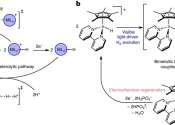Your emotional reaction to climate change may impact the policies you support, study finds
Emotional reactions to climate change may lead to specific policy preferences, according to a study published in the open-access journal PLOS Climate by Teresa A. Myers of George Mason University and colleagues.









